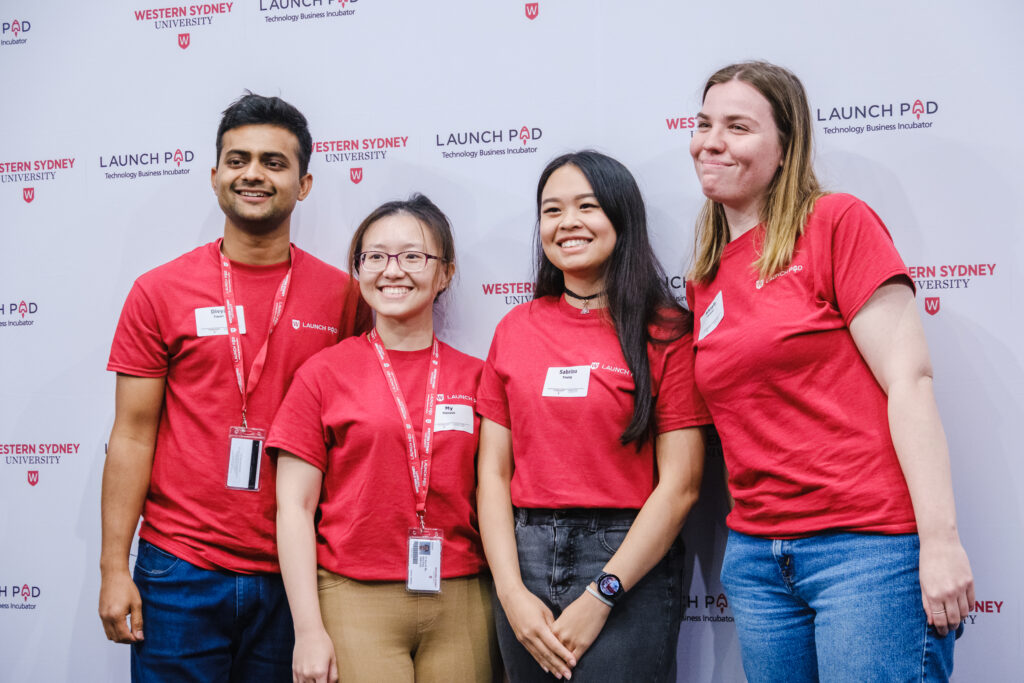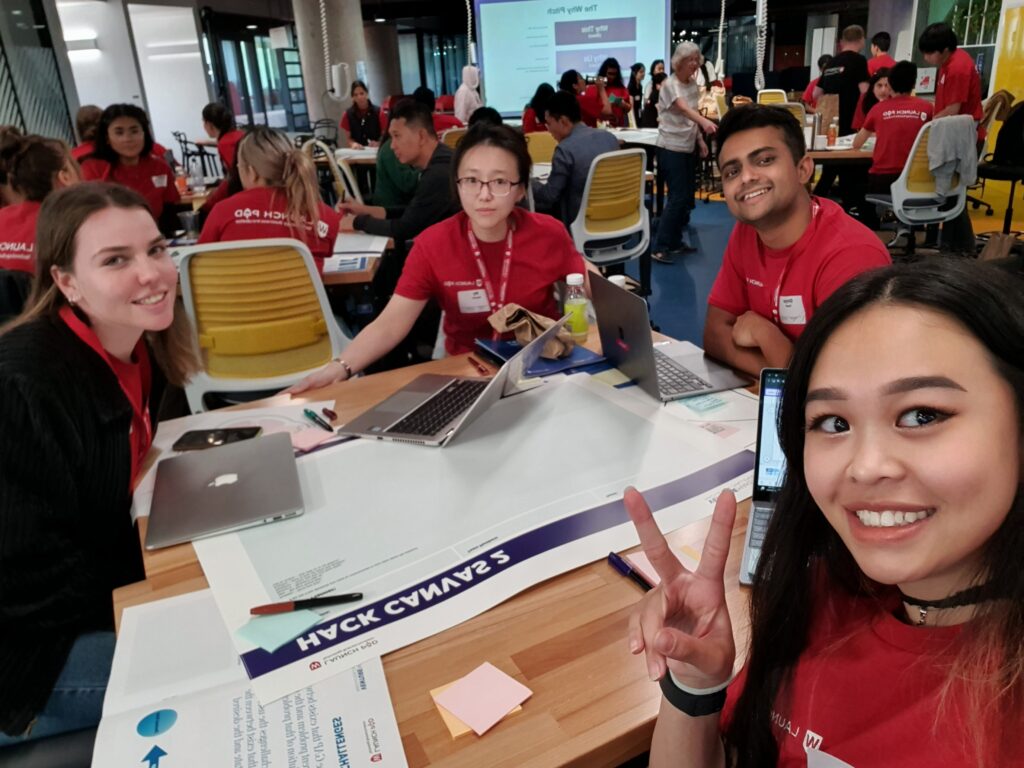HomeBlogEducationEventsHeath & MedicalLaunch PadProgramStudentsVenture MakersWestern SydneyWestern Sydney UniversityCarving Niche in Western Sydney’s Mental Health: Dr. AI
Carving Niche in Western Sydney’s Mental Health: Dr. AI
Carving Niche in Western Sydney’s Mental Health: Dr. AI
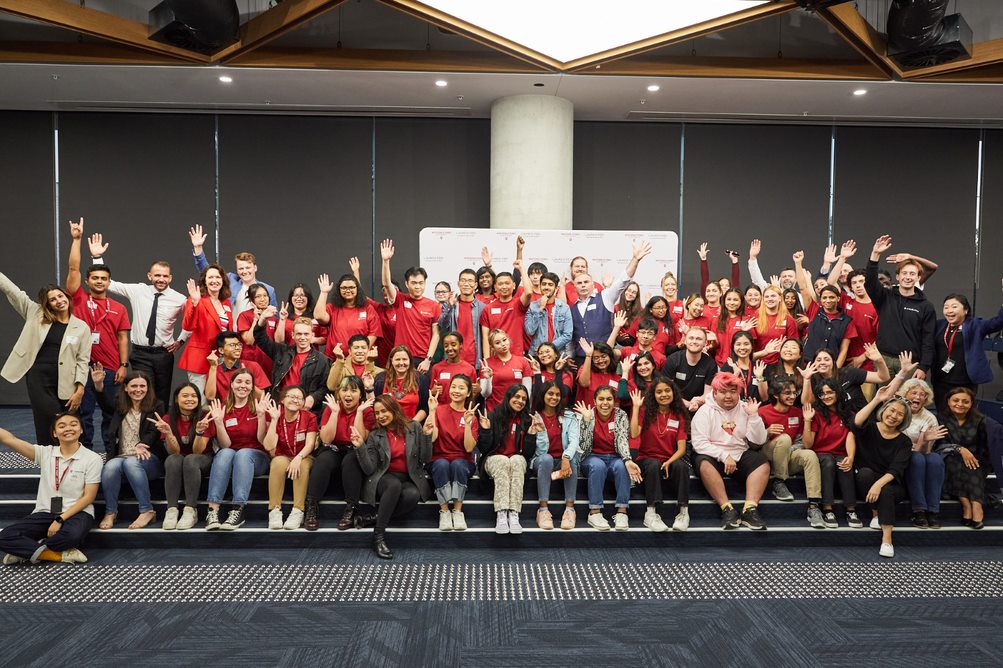
Time has really flown this year…March Madness has come and gone, and here we are already at the start of May….
I wanted to share a unique experience I participated in last week with Launch Pad – Western Sydney University:
The Venture Makers Innovation Challenge #4 “How Do We Promote Mental Health in Western Sydney?”
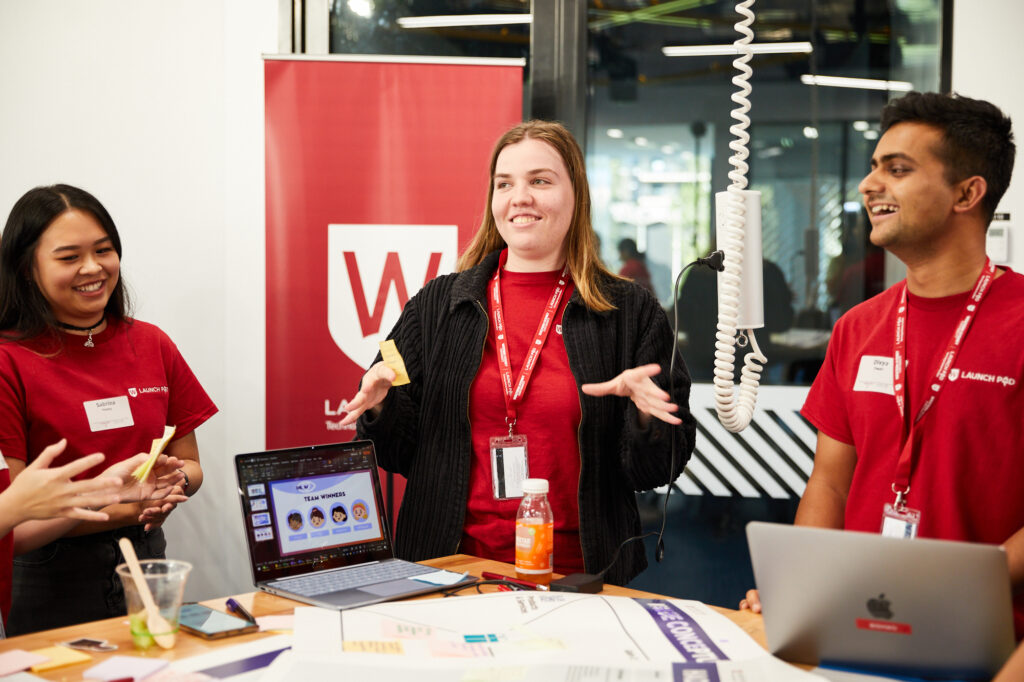
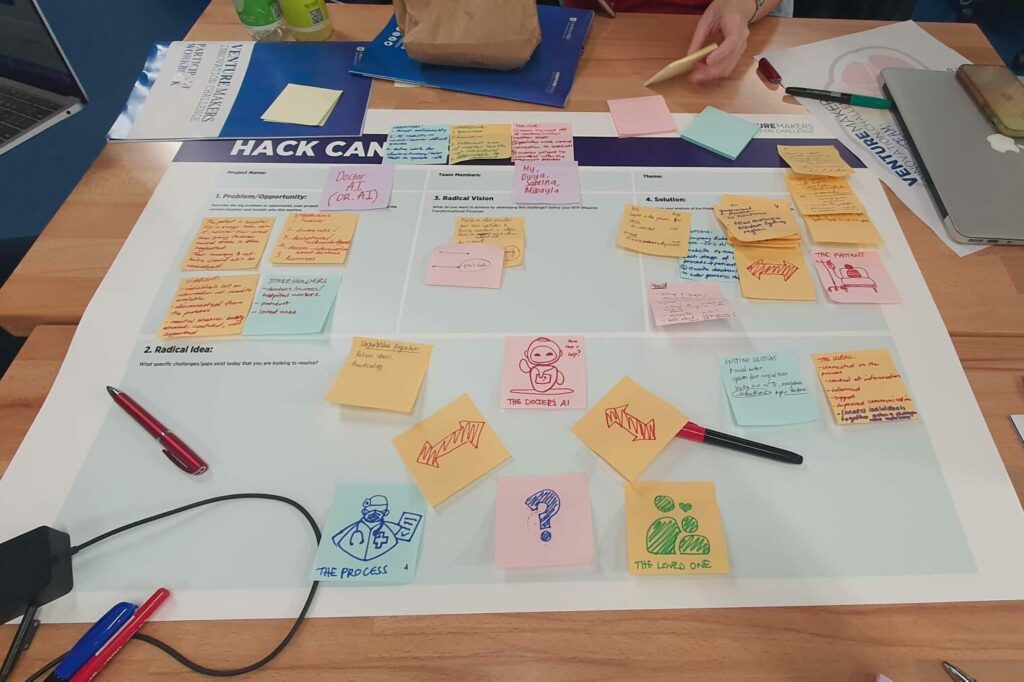
My understanding of the challenge is that it has always been a hackathon competition solving relevant, social and global issues that connects its participants to professionals in industry, and other like-minded, ambitious individuals.
It is a transformational experience that has consistently developed my communication skills in different aspects each time I have participated. Other than the benefits of skills development, accelerated career progression, networking, and the practical application of innovation, participants also receive a digital badge upon completion. If that isn’t to make you want to try it out, there was the prize offer of $300 per member of the winning team and literally anyone can participate (you didn’t have to be a student!)
After participating in VMIC 3 – Accelerating to Net Zero and now VMIC 4, I had the misconception that the experience would be the same.
There were multiple differences including communication upskilling, delivery style, and process of the challenge.
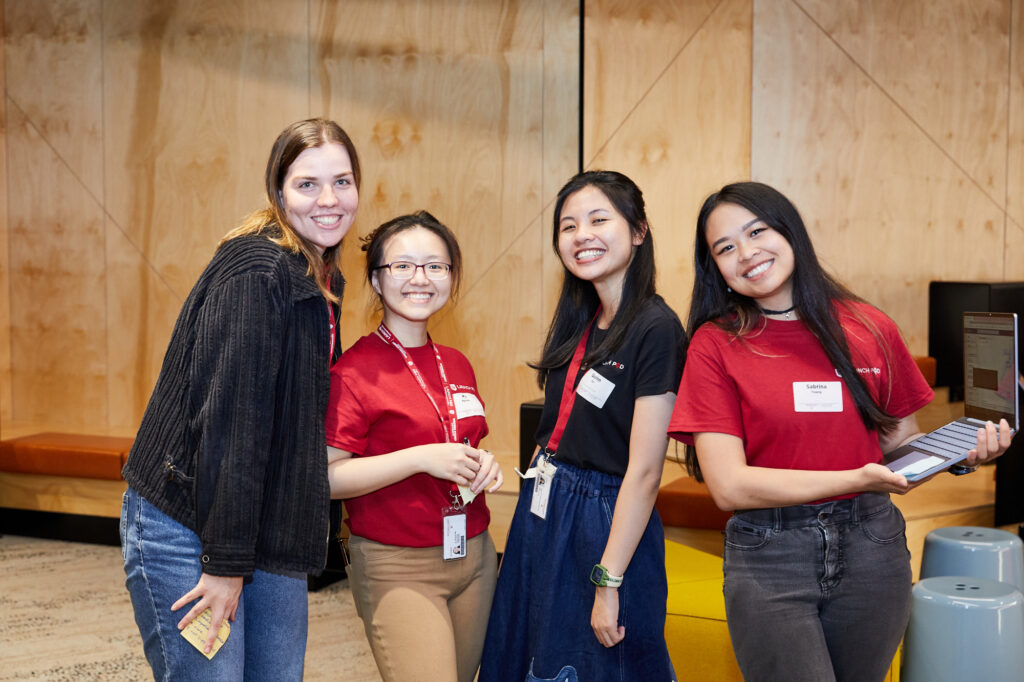
Communication
VMIC 3: taught pitch of voice determining credibility, likeability and neutrality.
VMIC 4: taught hand gestures determining credibility, likeability and neutrality.
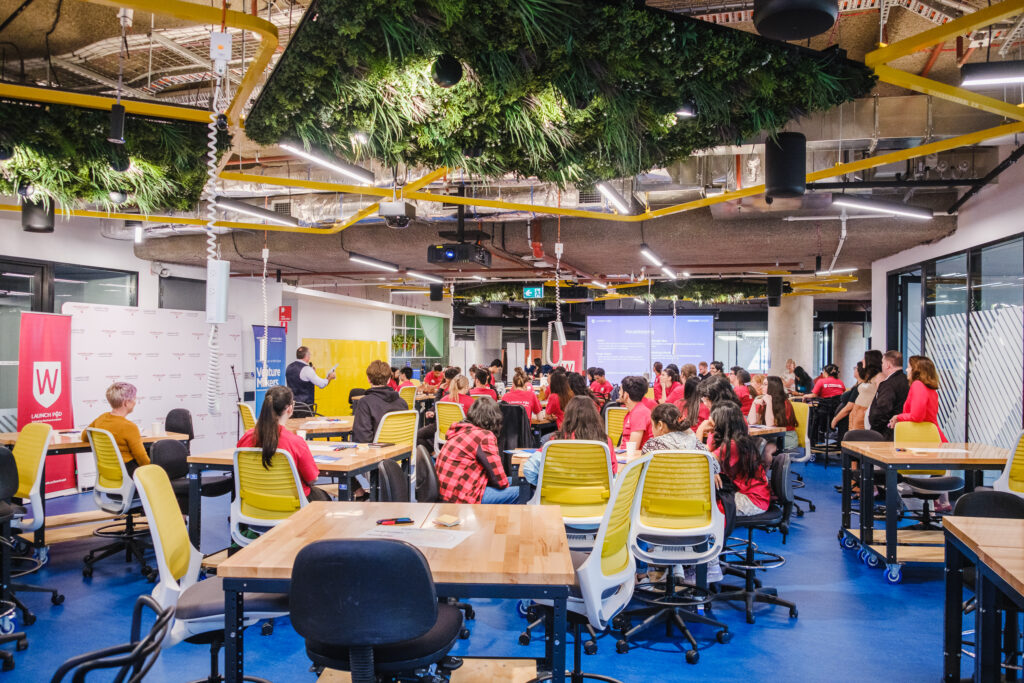
Process
VMIC 3: had industry professionals walking around and offering their insight
VMIC 4: had entrepreneurs advising on pitch presentation skills, and had additional booklets and poster-boards we could pin our ideas to
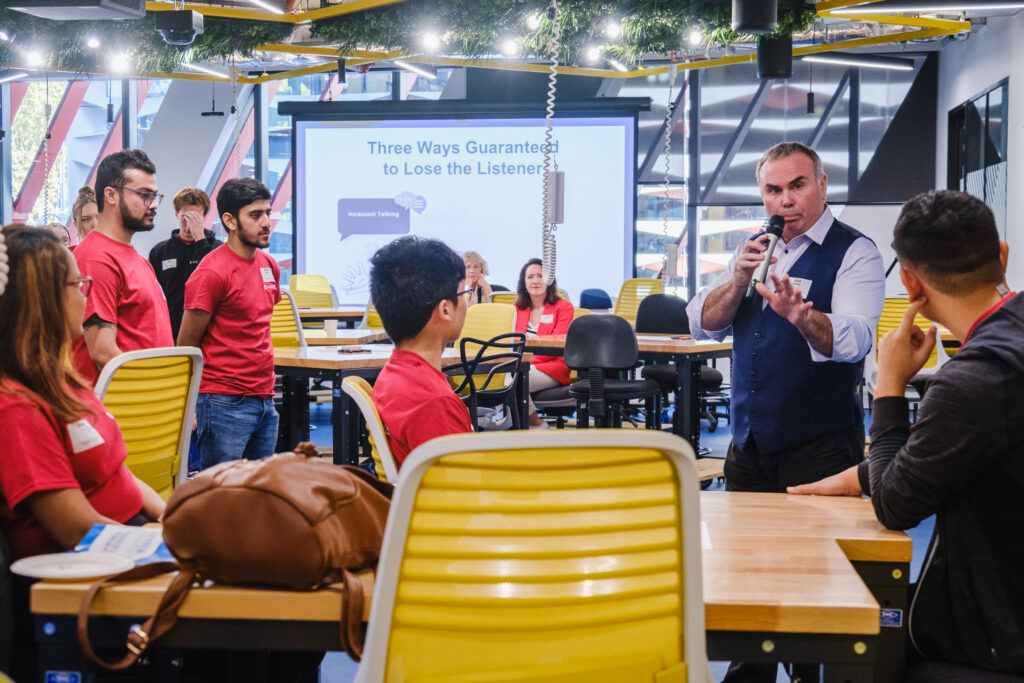
Delivery
VMIC 3: opened with a theatre-style conference held in a office environment, before being ushered into meeting rooms and open offices to complete our hackathon.
VMIC 4: opened with a classroom banquet-style conference held in an industrial workshop environment and we remained in the vicinity for the hackathon before pitching in a theatre-style conference.
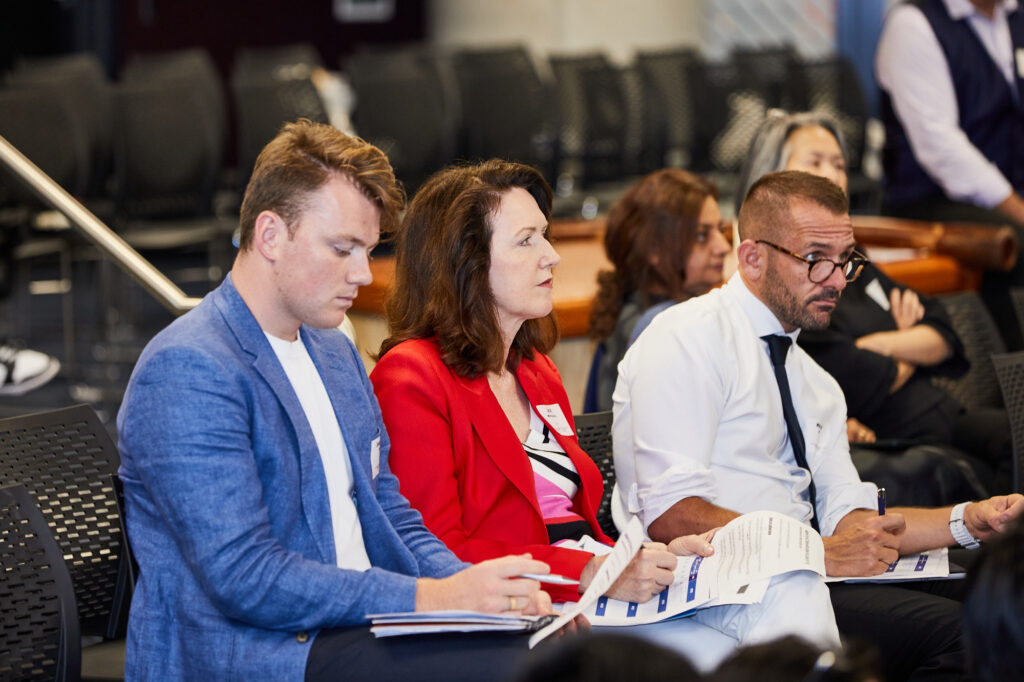
It consisted of three core features:
- Real-time SMS text updates on patient status, surgical procedure, and wait times
- Chat function to enable other people going through the same waiting game to communicate and share their concerns, forming a sense of community.
- AI robot to answer generic enquiries about the entire patient care and recovery process
This ensured that loved ones/carers were connected to the process and provided assurance about their relative patients, were in control of their information, aware of what was happening at each stage, felt supported without taking away the time and attention of hospital staff like doctors and nurses. This additionally enabled healthcare workers more capacity to focus on saving lives rather than spend time consoling or updating patients’ loved ones.
Although the idea was niche and answered the theme of the challenge the best, my team unfortunately could not take the winning prize being a part of the student casual staff at Launch Pad. We had a lovely special mention before they announced the winning (non-student-casual-staff-team). If you wondered about the fairness of the judging, the judges did not know we were staff (having not met them during the short 3 weeks we had worked there) and were kept in a separate room until the pitching session started to avoid bias.
I am really thankful to my teammates Mikayla, Divya and My, who supported me throughout this journey in resolving a critical social issue that could affect any living individual:
"hospitals are global institutions, and anyone at any stage of their life could be waiting for and anxious about a loved one at the hospital".- Mikayla
It was a day of fun, excitement, mixed emotions, and exhaustion. On top of the challenge, things were made more challenging when our team were trying to coordinate getting our headshots done for Launch Pad promos, and even more so for Divya and myself as we both were attending classes in between breaks.
Diamonds are created under pressure and even though we couldn’t take home the $300 prize per person, we walked away with camaraderie, pride, and appreciation, and shone brighter than we had before. It was the first pitch competition I had ever won, and I was so surprised at not only my own abilities, but my team’s capabilities.
